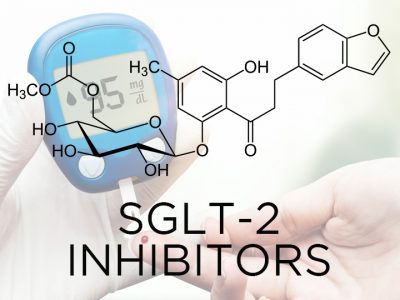Month: August 2020
-
A new drug candidate for Alzheimer’s disease may reverse memory loss.
As per findings appear in the journal Redox Biology, researchers at the Salk Institute have discovered that a drug candidate that scientists have previously shown to slow aging in brain cells has successfully reversed memory loss in a mouse model of inherited Alzheimer’s disease. Alzheimer’s is a progressive brain disease that destroys brain cells, leading to…
-

Fournier Gangrene Associated with Sodium-Glucose Cotransporter-2 Inhibitors – study from FAERS data
Sodium-glucose cotransporter-2 (SGLT2) inhibitors are a relatively new drug category used for type 2 diabetes mellitus treatment in adults. They prohibit the normal functions of SGLT2, which are primarily expressed in the kidney, responsible for reabsorption of glucose from the glomerular filtration back into circulation, leading to urinary glucose excretion, thus lowering blood sugar. Unlike…
-
FDA Approves New Opioid for Intravenous Use in Hospitals, Other Controlled Clinical Settings
On 07 August 2020, the U.S. Food and Drug Administration approved Olinvyk (oliceridine), an opioid agonist for the management of moderate to severe acute pain in adults, where the pain is severe enough to require an intravenous opioid and for whom alternative treatments are inadequate. Olinvyk is indicated for short-term intravenous use in hospitals or…
-
Eli Lilly Begins Phase 3 Trial of Monoclonal Antibody for COVID-19 Prevention
Eli Lilly has begun a phase 3 trial of its monoclonal antibody LY-CoV555 for prevention of COVID-19 in residents and staff at long-term care facilities in the U.S. (skilled nursing facilities, commonly referred to as nursing homes, and assisted living facilities). LY-CoV555, the lead antibody from Lilly’s collaboration with AbCellera, is a neutralizing IgG1 monoclonal antibody (mAb) against…
-
FDA retires Medwatch to manufacturer program
The FDA has retired its MedWatch to Manufacturer Program as of July 31, 2020, in favor of the FDA Adverse Event Reporting System (FAERS). Created in 1993, the program had allowed participating drug and biologic manufacturers to receive information from the FDA on serious adverse event reports submitted directly to the agency for new molecular…
-
How close are we to a Coronavirus vaccine?
As per world health organization (WHO), more than 140 teams of researchers are racing to develop a safe and effective coronavirus vaccine. Vaccines normally require years of testing and additional time to produce at scale, but scientists are hoping to develop a coronavirus vaccine within 12 to 18 months. Vaccines mimic the virus – or…
-
Japan Release Document on Clinical Evaluation of Pediatric Population Along With Adults
03 June 2020, The Ministry of Health, Labour and Welfare (MHLW) of Japan released a document providing general guidelines for the clinical evaluation of children that can also be evaluated together with adults to further streamline and optimize the clinical development of pharmaceuticals for children. This guideline summarized the points to be noted about the…
-
Regulatory actions for new signals – EMA PRAC updates
Lisdexamfetamine – QT prolongation and cardiac arrhythmia: Lisdexamfetamine has shown to prolong the QTc interval in some patients. It should be used with caution in patients with prolongation of the QTc interval, in patients treated with drugs affecting the QTc interval, or in patients with relevant pre-existing cardiac disease or electrolyte disturbances. Due to this…
-

DCGI gives permission to SII-Oxford COVID-19 vaccine for phase 2, 3 clinical trials in India
The Drugs Controller General of India (DCGI), has given its permission to Serum Institute of India (SII) to conduct the phase 2 and phase 3 human clinical trials of a coronavirus vaccine which has been developed by the University of Oxford in India. The approval for the phase 2 and 3 human clinical trial of…